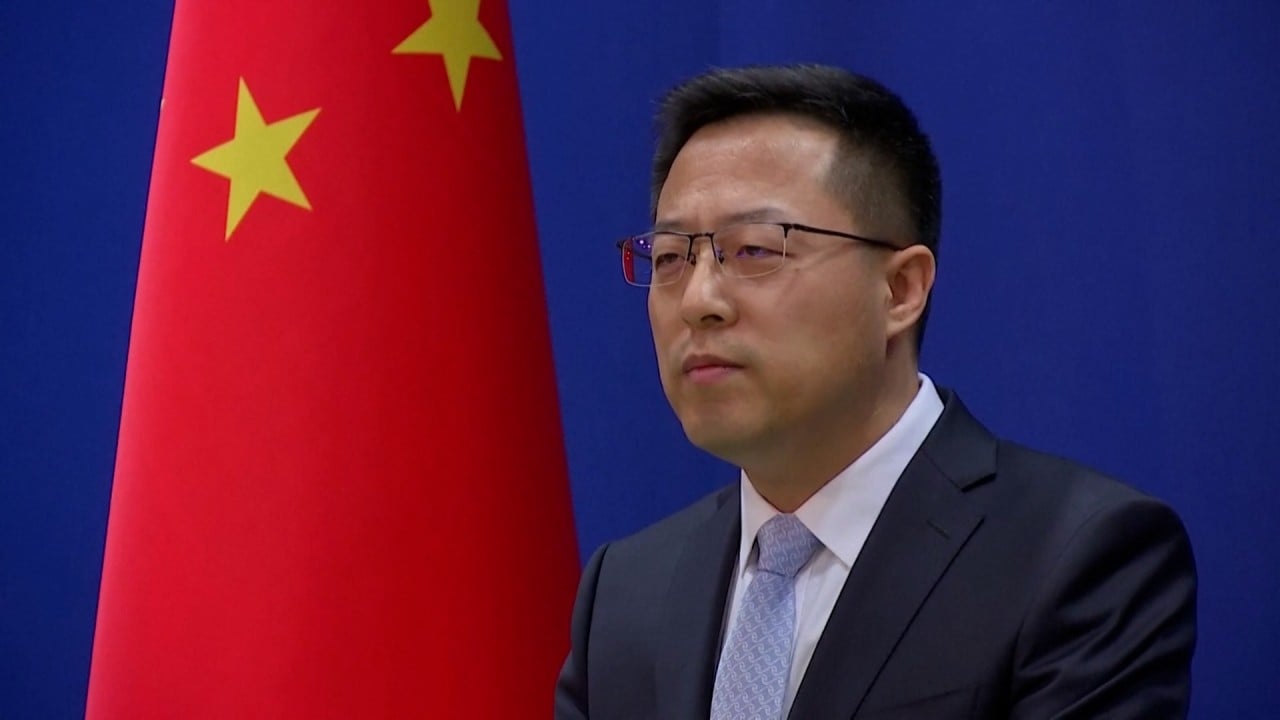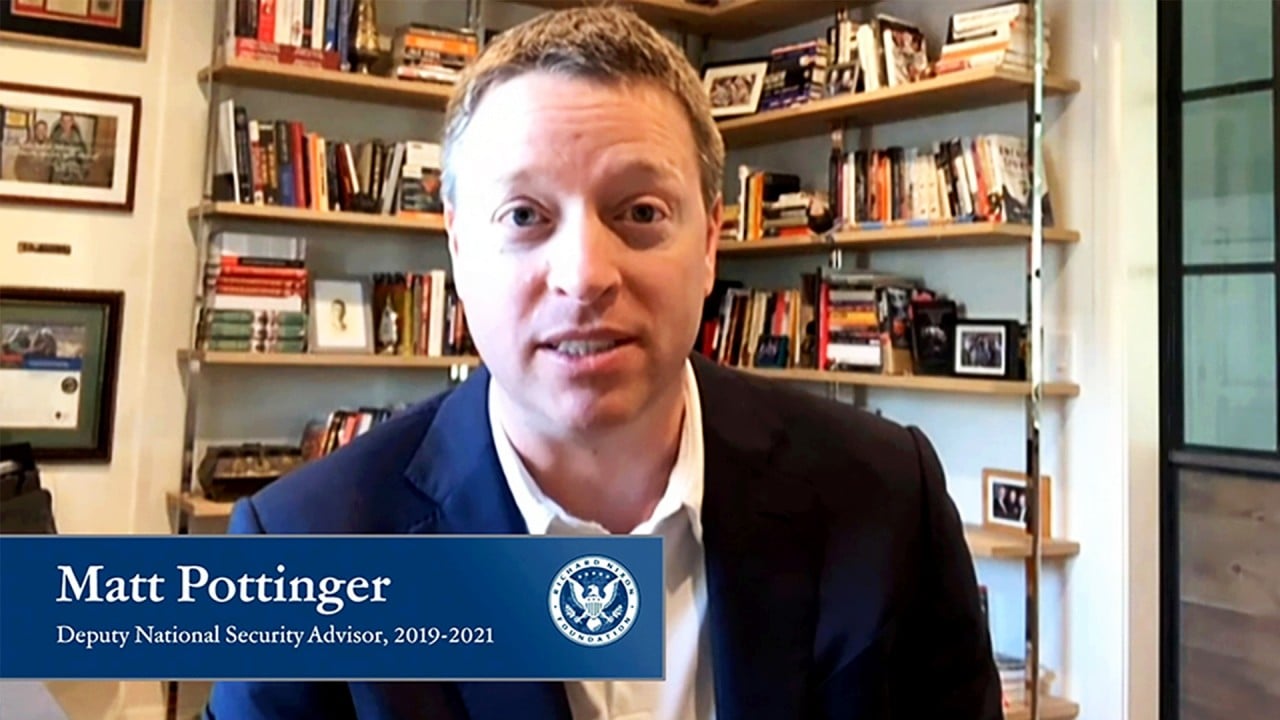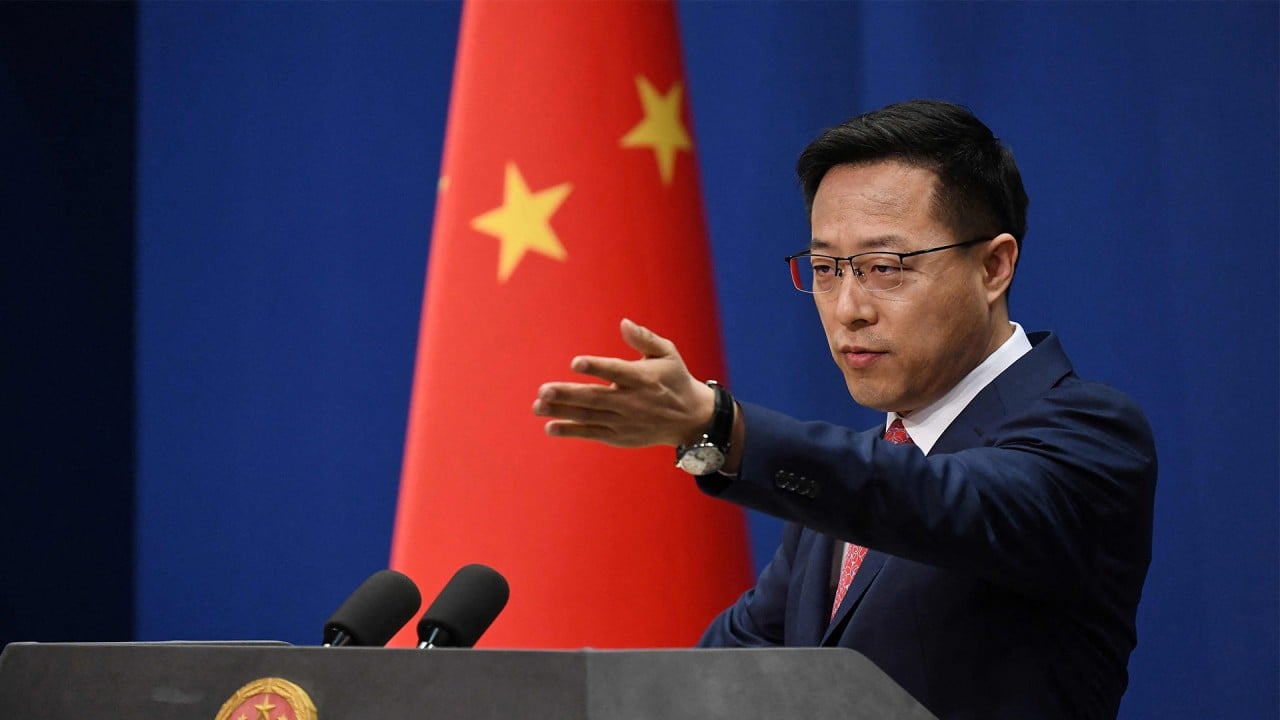
China summons Japanese envoy over ex-PM Abe’s Taiwan remarks
- Former leader of Japan ‘extremely wrong’ to suggest an attack on the island would be an emergency for Tokyo and Washington
- Assistant foreign minister Hua Chunying reminds envoy of previous Japanese aggression against China
In “stern representations” made on Wednesday night to ambassador Hideo Tarumi, Chinese assistant foreign minister Hua Chunying said Abe’s remarks were “extremely wrong” and a violation of the basic norms of relations between the two countries.
Japan, US could not stand by if China invaded Taiwan, ex-PM Abe says
“A Taiwan emergency is a Japanese emergency, and therefore an emergency for the Japan-US alliance,” he told the Institute for National Policy Research, a Taiwanese think tank.
Beijing regards the island as its territory and has vowed to take it back, by force if necessary.
Hua said Abe’s remarks “gave brazen support to Taiwan independence forces” and “China is resolutely opposed to this”. She added that Japan had “no right” to make “irresponsible” remarks on the Taiwan issue, because of its history of aggression against China.
“China strongly urges Japan to deeply reflect on history, learn from history, and not to damage China’s sovereignty in any form, and not to send any wrong signal to ‘Taiwan independence’ forces,” she said.
Hua’s complaint followed a strongly worded comment by foreign ministry spokesman Wang Wenbin earlier on Wednesday.
Wang said Abe had “talked nonsense”, warning that “anyone who dares to repeat militarism and challenge the bottom line of the Chinese people will surely be shattered in the face”.
Further, Abe warned that any military action targeting Taiwan would lead to “economic suicide” for China despite its being one of the world’s top economies.
Japan needed to work with other US allies to send a clear signal to Beijing that any military action against Taiwan would inflict a “very high cost”, Kono, a former prime ministerial hopeful, told a press conference in Tokyo.
Xi responded by warning that “we will have no alternative but to take drastic measures” if Beijing’s red line was tested or crossed.
Hu Jiping, vice-president of the China Institutes of Contemporary International Relations, said Abe’s comments were more “explicit” and “went too far” in showing support for Taiwan, and Beijing must react harshly considering his influence in the government.
“By saying ‘a Taiwan emergency is a Japanese emergency’, he actually made it more explicit that Japan would intervene in the reunification [of Taiwan] with its own force,” Hu said.
There had been no change in Abe’s stance on promoting ties with the island in past years, Hu noted, but added that he now found it more “convenient” to make such explicit remarks as he was no longer the head of government.
Japan’s former PM Shinzo Abe visits controversial Yasukuni Shrine
Fumio Kishida took office as prime minister in October, but Abe – the longest-serving prime minister in Japanese history – can still influence government policymaking, Hu said.
“His remarks [are a way of] somehow indirectly exerting his influence on the government,” he added.
Pointing to a notable trend among Japanese politicians this year to break with Tokyo’s traditionally neutral position and show security support for Taiwan, Hu said the aim was to “test China’s bottom line”.
Such politicians include Taro Aso, Japan’s then deputy prime minister who suggested in July that the country’s military would be deployed to assist the US if mainland Chinese forces invaded Taiwan.
However, Hu also noted that the current government had so far maintained a “cautious” stance on Taiwan, in contrast with the radical comments of China hawks, so as not to anger Beijing.
‘Gross interference’: China hits back at Japan’s defence take on Taiwan
Japan must make sure there is no wavering, backtracking and line-crossing on the matter, Wang warned.




